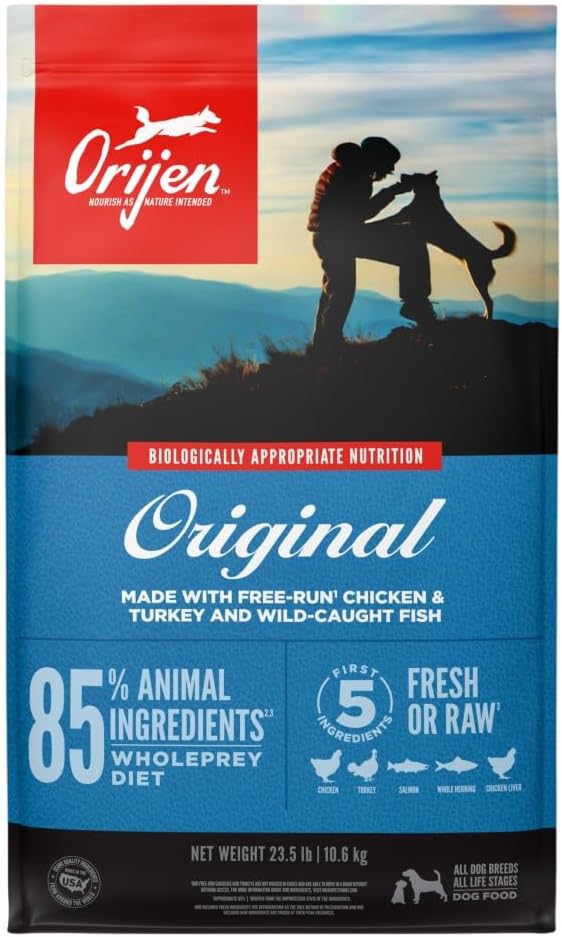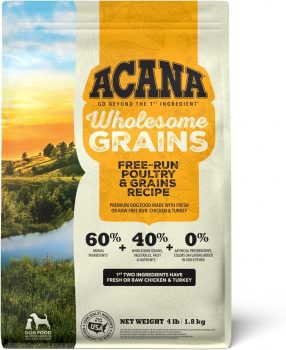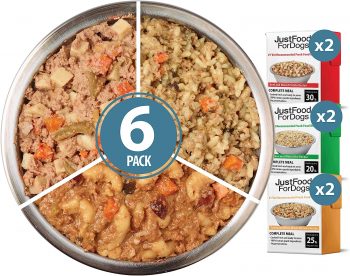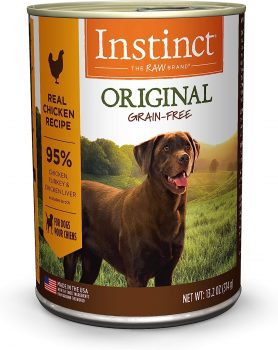Schnauzers, known for their unique appearance and spirited temperament, come in three sizes: Miniature, Standard, and Giant. Each of these sizes has distinct nutritional requirements. Proper feeding is essential to ensure they maintain optimal health, manage weight, and reduce the risk of certain breed-specific ailments.
1. Understanding Schnauzer’s Nutritional Needs
Schnauzers, irrespective of their size, are active and require a balanced diet to fuel their energy. They benefit from high-quality dog food rich in protein, moderate fats, and limited carbohydrates. Additionally, some Schnauzers are prone to hyperlipidemia, a condition marked by elevated fat levels in the blood. Hence, it’s essential to monitor fat intake.
2. Feeding the Miniature Schnauzer
Miniature Schnauzers weigh between 10-15 pounds when fully grown. They typically require about 480-720 calories per day, which equates to approximately 1 to 1.5 cups of high-quality dry kibble, depending on the calorie content.
Puppy: 1 to 2 cups of puppy formula spread across three meals.
Adult: 1 to 1.5 cups daily, ideally split into two meals.
Senior: Monitor weight and activity level, adjust accordingly, usually about 1 cup daily.
3. Feeding the Standard Schnauzer
Standard Schnauzers are medium-sized, weighing between 30-50 pounds. They need about 900-1500 calories daily, again varying based on activity level and age.
Puppy: 2.5 to 3 cups of puppy formula daily.
Adult: 2 to 3 cups of adult dog food daily.
Senior: About 2 to 2.5 cups, but monitor weight and adjust as needed.
4. Feeding the Giant Schnauzer
The Giant Schnauzer can weigh between 55-85 pounds or more. Their caloric needs range from 1500 to 2400 calories daily.
Puppy: 3 to 5 cups daily.
Adult: 4 to 6 cups daily, divided into at least two meals to prevent bloat.
Senior: Typically 3.5 to 5 cups, but always monitor for weight changes.
5. Specialty Diets and Considerations
While many Schnauzers do well on standard high-quality dog foods, some might benefit from specialty diets:
- Weight Management: Schnauzers, especially the miniature variety, can be prone to obesity. Consider weight control formulas and ensure regular exercise.
- Grain-free: Some Schnauzers have allergies or sensitivities to grains. Grain-free diets can be beneficial, but always consult a vet before switching.
6. Treats and Extras
It’s easy to be charmed by a Schnauzer’s antics and give them treats. While treats are fine in moderation, they should not exceed 10% of the dog’s daily caloric intake. Choose healthy options like carrots or dog-specific treats.
7. Cost of Feeding a Schnauzer
The monthly cost can vary based on the dog’s size and the quality of the food you purchase. On average:
- Miniature: $20-$30 per month.
- Standard: $35-$50 per month.
- Giant: $55-$75 per month.
These are the average costs for mid-range dog food. Premium brands or specialty diets might increase the cost.
Our 5 Top Foods for Schnauzers
The diets were selected by our founder Justin Palmer, a certified canine nutrition expert, specifically with Schnauzers in mind:
| Food | Pros | Cons |
|---|---|---|
|
|
|
|

Check Today's Price on: |
|
|

Check Today's Price on: |
|
|

Check Today's Price on: |
|
|

Check Today's Price on: |
|
|
Conclusion
Feeding a Schnauzer requires understanding their unique dietary needs. Whether you have a spunky Miniature or a robust Giant, ensure they receive a balanced diet. Regular vet check-ups and monitoring weight can also guide any necessary adjustments in their diet. A well-fed Schnauzer is a happy, healthy companion!
Frequently Asked Questions About Feeding a Schnauzer

1. What kind of dog food is best for Schnauzers?
High-quality dog food with a primary source of animal protein is best for Schnauzers. It should have a balanced blend of fats and carbohydrates, with minimal fillers and artificial additives. Given some Schnauzers’ predisposition to hyperlipidemia, monitor fat content closely.
2. How many times a day should I feed my Schnauzer?
Ideally, Schnauzers should be fed twice a day, once in the morning and once in the evening. Puppies may require three meals a day initially. This feeding schedule aids in digestion and ensures a steady energy level throughout the day.
3. Are Schnauzers prone to food allergies?
Yes, some Schnauzers can be sensitive to certain ingredients, commonly grains. If your Schnauzer is showing signs of allergies like itching, redness, or digestive issues, consult a vet and consider a grain-free or limited-ingredient diet.
4. How do I know if my Schnauzer is overweight?
Regular vet check-ups will help monitor your Schnauzer’s weight. At home, you should be able to feel (but not see) their ribs and notice a distinct waist when viewing them from above. If unsure, consult with your veterinarian.
5. Can I give human food to my Schnauzer?
While some human foods are safe for Schnauzers, others can be toxic. It’s essential to know the difference. Always avoid chocolate, grapes, raisins, onions, garlic, and foods high in salt or fat. If giving table scraps, do so sparingly.
6. Are there specific health concerns related to diet in Schnauzers?
Yes, Schnauzers can be prone to hyperlipidemia (elevated fat levels in the blood) and pancreatitis. This makes it crucial to monitor fat intake. A balanced diet, combined with regular check-ups, can help mitigate these risks.
7. What are good treat options for Schnauzers?
Opt for low-calorie, healthy treats. Vegetables like carrots or green beans can be a good choice. There are also many dog-specific treats available but always check the ingredients and calorie content.
8. How much water should a Schnauzer drink daily?
Ensuring your Schnauzer has access to fresh water at all times is vital. On average, dogs should drink about an ounce of water per pound of body weight daily. Monitor their water intake and consult a vet if there are sudden changes.
9. Do Schnauzers need a specific diet as they age?
Yes, as Schnauzers age, their metabolism can slow down, and they might become less active. Senior dog foods are formulated to meet the needs of older dogs, providing essential nutrients without excess calories. Regular vet consultations can help determine when to switch to a senior diet.
10. Can I make homemade food for my Schnauzer?
Yes, homemade diets can be beneficial, provided they are well-balanced and meet all of your Schnauzer’s nutritional needs. If considering this route, consult a veterinarian or pet nutritionist to ensure the diet is complete and balanced.
 Check Today's Price on:
Check Today's Price on: Toledo, United States.
Toledo, United States.
